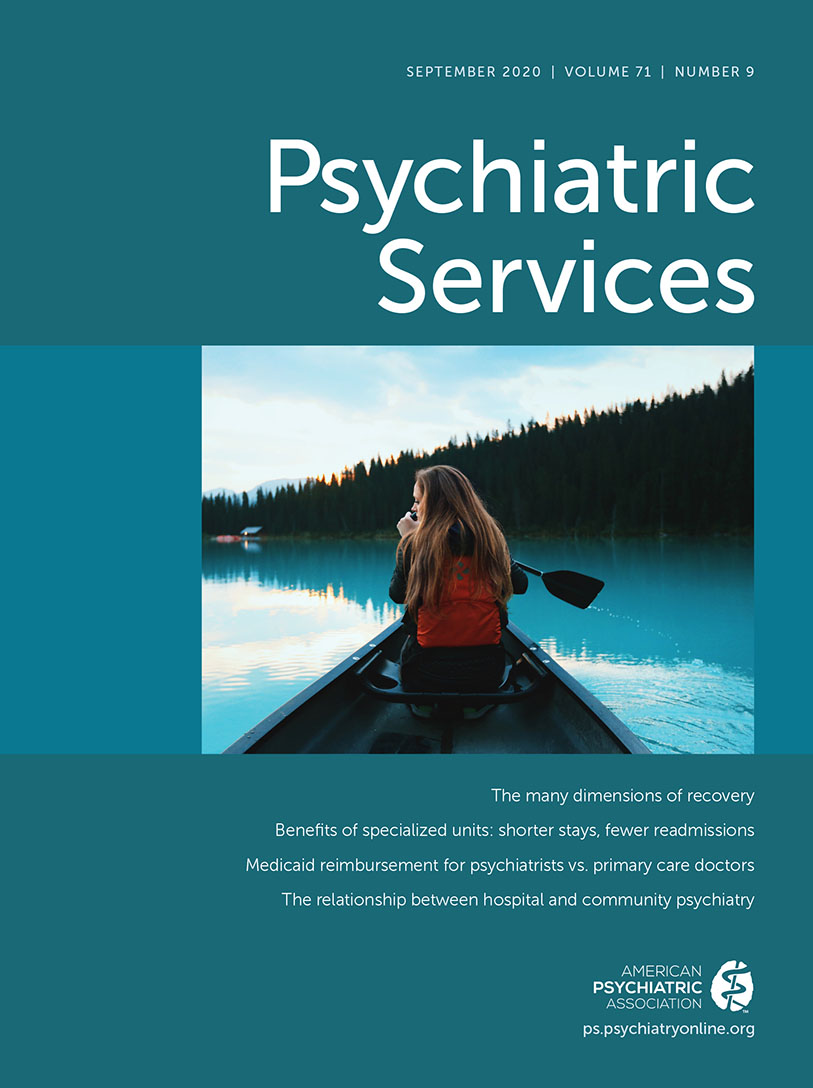Mental Health Services in Rural Areas
This is the August 2020 Editor’s Choice collection. To review all collections, visit the Editor’s Choice section of ps.psychiatryonline.org.
Among the many significant gaps between availability of mental health care and need for these services in the United States, access to timely diagnosis and treatment is particularly limited in rural areas. Growing problems of isolation, depression, and substance use in rural communities have magnified the impact of the country's shortage of mental health professionals on rural populations. Despite the need to recruit mental health professionals to rural areas, the teaching, research, and employment opportunities tend to be more concentrated in urban areas. Challenges in rural mental health care include inadequate workforce, varying levels and quality of training of new and existing personnel, and inequitable access to care. This collection highlights ongoing efforts to develop an adequate and sustainable workforce to provide rural behavioral health care.
The first set of articles describes the importance of culturally appropriate, patient-centered services and community stakeholder engagement to meet the mental health needs of rural communities. The next section highlights the importance of addressing the shortages of psychiatrists and behavioral health professionals in rural America, including implementing support programs aimed at increasing engagement of health professionals. The final group of articles examines how technology and telepsychiatry have expanded mental health access in rural communities both before and during the COVID-19 pandemic. Examples include the complexities of designing, implementing, and sustaining telepsychiatry to maximize benefits for rural populations.
Community integration and recovery-oriented care in rural areas
Frontline Reports
Peer Support Program for Veterans in Rural Areas
Jain S, Hernandez JM, Lindley SE, et al.
Psychiatr Serv 2014; 65:1177
Open Forum
The Changing Context of Rural America: A Call to Examine the Impact of Social Change on Mental Health and Mental Health Care
Carpenter-Song E, Snell-Rood C
Psychiatr Serv 2017; 68:503–506
Article
Addressing Mental Health Needs: Perspectives of African Americans Living in the Rural South
Haynes TF, Cheney AM, Sullivan JG, et al.
Psychiatr Serv 2017; 68:573–578
Letter
Flexible Assertive Community Treatment
Hubbeling DAA, Alonso-Vicente M, Firn F
Psychiatr Serv 2017; 68:983
Addressing shortages of mental health professionals in rural areas
Letter
Addressing the Shortage of Psychiatrists in Rural Areas
Dewan M, Meszaros ZS, Manring J
Psychiatr Serv 2014; 65:1508
Letter
Consultant Psychiatrists' Role in Ensuring High-Quality Care From Nonspecialists
Acharya B, Swar SB
Psychiatr Serv 2016;67:816
Frontline Reports
Addressing the Opioid Epidemic in Rural America
Flaherty MT, Stuby P, Kose W
Psychiatr Serv 2018; 69:1114
Brief Reports
Engagement With Project ECHO to Increase Medication-Assisted Treatment in Rural Primary Care
Salvador J, Bhatt S, Fowler R, et al.
Psychiatr Serv 2019;70:1157–1160
Improving access and continuity of rural mental health care with telepsychiatry
Article
Assessing Telemedicine Utilization by Using Medicaid Claims Data
Douglas MDD, Xu J, Heggs A, et al.
Psychiatr Serv 2017; 68:173–178
Commentary
Telemedicine for Mental Health in the United States: Making Progress, Still a Long Way to Go
Barnett ML, Huskamp HA
Psychiatr Serv 2020; 71:197–198
Promoting High-Value Mental Health Care
Using Continuous Quality Improvement to Design and Implement a Telepsychiatry Program in Rural Illinois
Mahmoud H, Vogt EL, Dahdouh R, et al.
Psychiatr Serv 2020; 71:860–863
Article
Rural-Nonrural Differences in Telemedicine Use for Mental and Substance Use Disorders Among Medicaid Beneficiaries
Creedon TB, Schrader KE, O'Brien PL, et al.
Psychiatr Serv 2020; 71: 756–764
State Mental Health Policy
An Innovative Approach to Care: Integrating Mental Health Services Through Telemedicine in Rural School-Based Health Centers
Pradhan T, Six-Workman EA, Law K-B
Psychiatr Serv 2019; 70:239–242



